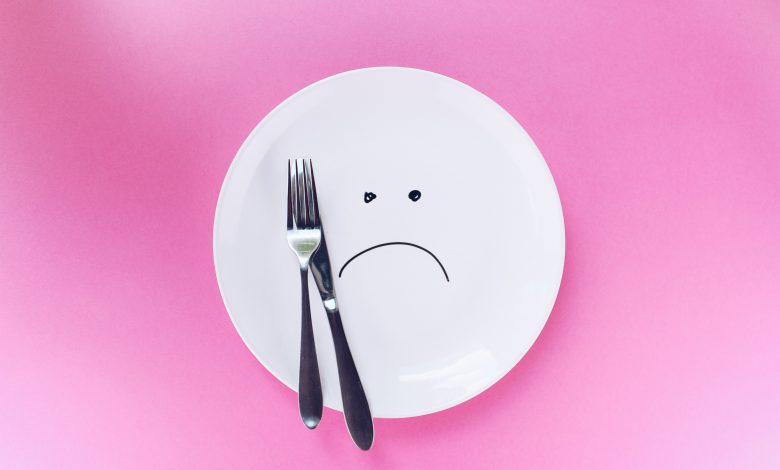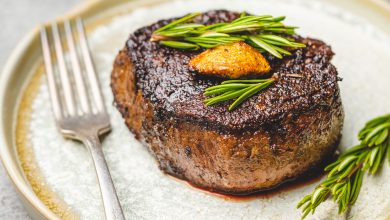
Fad Diets to Avoid and Why They Don’t Work
A healthy diet is essential for healthy living. It protects against several chronic ailments, such as cancer, diabetes, and heart diseases. A healthy diet comprises of legumes, animal foods (meat, fish, and eggs), and staples such as cereals (rye, wheat, maize or barley). A healthy diet is the key to maintaining a healthy weight and will take you one step closer to your goal of losing extra pounds. A fad diet, on the other hand, promotes unhealthy ways to lose weight. With all the focus on weight in society, its no wonder that a new fad diet appears every year. Fad diets promise quick results. Their proponents swear by them, claiming that switching to a fad diet is the easiest and fastest way to lose weight. A fad diet, however, can do more harm than good, many experts war. These diets cut out key foods and may cause several health problems, such as weakness and fatigue, constipation, nausea, headache, and dehydration.
How to Spot a Fad Diet
There is a reason why fad diets develop a cult like following. They promise unbelievably fast results. Every year, millions of people jump on the fad diet bandwagon hoping that it will be a shortcut to weight loss. Truth be told, there is no shortcut to success. When the temptation to jump on the fad diet bandwagon gets too strong to resist, remind yourself that good things take time. Fad diets are often repackaged as healthy diets. Many people don’t even know that they are following a fad diet until they start developing health complications. Usually, a fad diet shares some or all of these characteristics.
Severely Restricts Calories
A healthy diet cuts out a maximum of 1,000 calories per day to promote a safe rate of weight loss (one to two pounds a week). Anything faster than that and you will end up losing water and muscle mass. A fad diet can cut out up to 2,000 calories per day. The problem with fad diets is that, though they may promote rapid weight loss, the results are not sustainable. People who switch to a fad diet may lose weight quickly; however, it won’t stay off. Moreover, a fad diet is often nutrient deficient. Severely restricting calorie intake can lead to health problems, such as frequent headaches, fatigue, and gastrointestinal symptoms, many experts warn.

Promises Unrealistically Swift Results
Fad diets promise unrealistically fast results (claims such as lose five to ten or even twelve pounds a week). Remember if a claim made by a fad diet proponent sounds too good to be true, it probably is. Fad diets promise to detoxify the body and help lose weight, but they are not as effective as they are claimed to be and are usually not backed by any scientific evidence.
Eliminates Entire Food Groups
Many fad diets are based on the assumption that carbohydrates promote weight gain. These diets promote a prolonged state of ketosis, which is not just unsustainable, but can also damage your health in the long run. Although these diets may promote short-term weight loss, they are not good for your heart and general health.
Relies on Selling Supplements
Steer clear of diets that promote expensive supplements as a panacea for losing weight and keeping it off. Many diet pills are often marketed as magic pills that suppress appetite. Many such pills contain phenylpropanolamine, or PPA, a synthetic agent which has been linked to stroke in young women. Though the FDA removed PPA from all drug products in 2000, they are still used in supplements. A balanced diet is a much healthier alternative to these pills. You may not get lightening fast results; however, they will be sustainable, and your body won’t be starved of essential nutrients.
Promotes Rigid Rituals and Specific Food Combinations
Fad diets have rigid rules that are both unrealistic and unhealthy. Many fad diets, for instance, promote eating a grapefruit with every meal, while others recommend only drinking lemon water with honey. Following these strict recommendations can result in inadequate calorie intake. Many fad diets promote specific food combinations. Proponents of such diets claim that combining some foods or eating them at certain times of the day promotes weight loss. There is no scientific evidence to substantiate this claim.
What’s Wrong with Fad Diets?
A fad diet may help you drop extra pounds; however, the results are not sustainable. People on a fad diet often regain weight after they go back to their old eating habits. When it comes to losing weight and keeping it off, slow and steady wins the race. A study found that people who lose weight gradually are the most successful at maintaining the results. There is a reason why fad diets do not work in the long run – these diets fail to promote healthy and sustainable eating habits (which is the foundation of weight loss). A study found that people who tried a fad diet regained around 33 percent of the lost weight within a year and most weight within three to five years. Plus, most fad diets are restrictive. They cut entire food groups and are extremely difficult to adhere to for a long time. People who switch to a fad diet are likely to fall off it quickly. When this happens the person may feel like a failure. Additionally, many fad diets don’t encourage exercise. While restricting your calorie intake can result in rapid short-term weight loss, the importance of maintaining an active lifestyle cannot be emphasized enough. Exercise is an essential element to a healthy lifestyle and is helpful for weight loss and maintaining it.
Some Fad Diets to Avoid

The Werewolf Diet
The werewolf diet promises people the moon. Proponents of the diet claim that it can cleanse the body and help a person lose up to six pounds of water weight a day. Also known as the lunar diet, the werewolf diet involves ingesting only water and fruit and/or veggie juice for 24 hours during the full moon. Those who choose to follow the extended version must modify their eating plans according to the moon’s phases. During the waxing moon, for instance, you are not allowed to eat thickeners and must eat less than usual. While the benefits of the werewolf diet sound impressive, there is no research to back them up. Additionally, you will miss out on chewing on real food. The diet is completely impractical, and you will gain any weight that you lose quickly.
The Baby Food Diet
Proponents of this diet want you to eat what your baby eats. People on a baby food diet are required to replace breakfast and lunch with fourteen jars of baby foods, such as mashed carrots, pureed ham, and strained peas. Baby foods have extremely low calories (25 – 75 calories). Additionally, baby foods do not contain essential vitamins and minerals that the body of an adult human being requires. Plus, you won’t get enough satisfaction from your meals, as you won’t be chewing your food.
The Cabbage Soup Diet
Eating cabbage soup everyday with a well-balanced and nutritious diet can be a healthy way to lose weight, but what about eating just cabbage soup throughout the day? This is what the cabbage soup diet involves. Critics of the fad diet say that it deprives the body of 1,200 calories required for healthy metabolism and performing daily activities. Though you will lose a few pounds, all that will return once you go back to your original diet, and what’s more, the American Heart Association warns that a diet that predominantly comprises cabbage soup can cause exhaustion and abdominal pain. Other side effects include bloating and gas. Additionally, the cabbage soup diet is protein deficient.
The Master Cleanse Diet
The master cleanse diet became extremely popular in 2007 after Beyoncé claimed that it helped her lose twenty pounds in a couple of weeks for her movie Dream Girls. Followers of the diet are allowed to consume only homemade lemonade (a mixture of lemon juice, cayenne pepper, water, and maple syrup) six to twelve times day. The diet can cause a number of health issues, many experts warn. Some common side effects include fatigue, dehydration, dizziness, and nausea. Though you will lose water weight, all that will come back once you start eating solid foods. Plus, you run the risk of losing muscle.
The Five Bite Diet
Developed by a physician, Dr. Alwin Lewis, the five bite diet involves eating five bites of any food of your choice for lunch and five more for dinner. Even if you take giant bites of a high calorie food, you will be consuming just 900-1,000 calories. The five bite diet can wreak havoc on your body, causing everything from heart palpitations to reducing your immune defenses.
The HCG Diet
The HCG diet involves replacing real foods with human chorionic gonadotropin, a hormone produced during pregnancy that is believed to suppress hunger. There is, however, no evidence that HCG does anything more than just acting as a placebo. You will not just restrict your calorie intake to 500 calories a day (which is nowhere near the recommended daily calorie intake), but will also expose yourself to serious health issues, such as gallstones, depression, and heart problems. No wonder the Food and Drug Administration warns against using HCG for weight loss.
The Grapefruit Diet
Grapefruit is a rich source of several essential nutrients, including vitamins A and C and potassium. Just because grapefruit is beneficial for your body, focusing all your meals on grapefruit and grapefruit juice won’t solve all your weight problems. This is what the grapefruit diet suggests. Proponents of the diet claim that the diet can help dieters lose more than ten pounds in as little as twelve days, as grapefruit contains fat burning enzymes in abundance. Though the grapefruit diet has been around for more than eight decades, you need to realize that everything old is not gold. Eating just grapefruits everyday can lead to serious health issues. You will not just restrict your calorie intake to 800 – 1,000 calories a day, but will also deprive your body of essential nutrients, such as protein, that drive biological activity.
The Cookie Diet
There are several iterations of the cookie diet. People on a cookie diet can have just high fiber and high protein (sorry, chocolate chip cookies aren’t allowed) cookies for breakfast and lunch. Supporters of the diet claim that eating healthy cookies is a surefire way to fast track weight loss. These cookies are marketed as sumptuous, delicious, and packed with health benefits. There is, however, an ugly side to the cookie diet. It deprives your body of essential nutrients. Additionally, drastically cutting down your calorie intake can negatively impact your metabolism, making weight loss difficult.

The Sleeping Beauty Diet
When you are sleeping, you are not eating. The sleeping beauty diet takes this simple fact to the extreme. It encourages people to take sedatives to sleep for hours, and even days. Continuously oversleeping can cause muscle deterioration. Additionally, sedatives that you take can have various side effects and may damage your health in the long run.
The Tapeworm Diet
Some people are so desperate to lose weight that they are even open to the idea of ingesting a tapeworm. Not only is this gross, but it is also unhealthy. A tapeworm will do what it naturally does – feed on your food, and you will even lose weight; however, you don’t need a doctor to tell you that this is an unhealthy and dangerous way to lose weight. Many people start using anti-tapeworm medication after losing weight. But by that time, several tapeworm eggs migrate to different parts of the body. When they hatch, you will have hundreds of thousands of tapeworms lurking in different parts of your body and a whole host of health issues.
The Blood Type Diet
The blood type diet is based on the assumption that eating foods according to one’s blood type can result in weight loss. According to the blood type diet, people with type O are meant to be hunters and should increase their daily intake of meat. People with type A blood should switch to a vegetarian diet, while type Bs should stick to dairy products. People with type AB should consume a combination of foods recommended for types A and B. The blood type diet is nothing more than a fad, many experts warn. There is no scientific evidence linking weight loss and eating certain foods according to one’s blood type. Additionally, you will be unable to meet your nutritional needs.
The Fletcherizing Diet
The fletcherizing diet involves chewing food at least 100 times before swallowing it. While chewing food properly has many health benefits, chewing it for more than 100 times can cause severe jaw pain. Additionally, you will end up spending more time eating your meals.
The Cotton Ball Diet
The cotton ball diet involves replacing regular foods with five cotton balls soaked in a smoothie, lemonade, or orange juice. The cotton ball diet does not just deprive your body of calories, but can also cause blockages in intestines, which in a worst case scenario can be life threatening. Additionally, most cotton balls contain harmful chemicals. Your body would thank you for keeping toxic cotton balls as far away from your plate as possible.
The Breatharian Diet
People on a breatharian diet are required to live off of just water, sunlight, and tea. Anyone who claims that you can lose weight quickly and safely by cutting out solid foods and fluids from your diet either does not know anything about the human body or is lying. Living off of just water, sunlight and air is a dangerous way to lose weight. Not only is the breatharian diet unsustainable, but it also deprives your body of essential nutrients and calories derived from foods (solids and fluids).
The Raw Food Diet
The raw food diet bans cooked or processed foods. The proponents of this diet believe that this a safe way to lose weight, as cooking veggies destroys several essential nutrients. While there is no denying that some essential nutrients can be lost during cooking, cooked veggies still pack fiber and several essential nutrients, such as vitamins and minerals. Additionally, cooking can enhance nutrients, while eliminating harmful bacteria in food. Plus, you will spend hours dehydrating, juicing, blending, cutting chopping, sprouting, germinating, and rehydrating your veggies.



